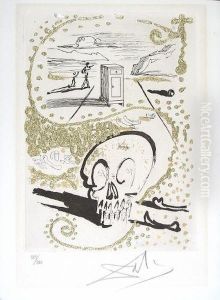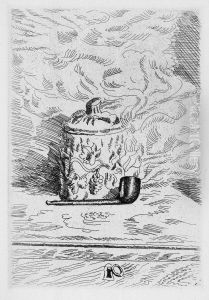Tristan Corbiere Paintings
Édouard-Joachim Corbière, better known as Tristan Corbière, was a French poet born on July 18, 1845, in Morlaix, Brittany. He came from a family with a rich nautical heritage, which influenced his later poetic works. His father was a ship owner and writer, which provided a cultured environment for the young Tristan. However, Corbière's life was marked by ill health, as he suffered from rheumatic fever in his youth, which led to rheumatoid arthritis and ultimately contributed to his early death.
Despite his health issues, Corbière was educated in both Morlaix and Paris. His education was interrupted due to his illnesses, but he eventually earned his baccalauréat. Although he studied law briefly in Paris, he was more interested in literature and frequented literary salons where he met various figures in the Parisian artistic scene. His physical appearance and demeanor, marked by his illness and a sometimes abrasive personality, kept him at the fringes of these social circles.
Corbière's literary output was not prolific, but his work is significant. His most famous collection of poems, 'Les Amours jaunes' (The Yellow Loves), was published in 1873 and represented the totality of his published work during his lifetime. This volume contains a variety of poetic forms and styles, blending irony, cynicism, and dark humor. His work is noted for its originality, linguistic creativity, and a deep sense of the macabre and the absurd, often reflecting his own personal struggles.
Corbière's poetry did not gain much recognition during his lifetime, and he remained a relatively obscure figure. However, after his death on March 1, 1875, at the age of 29, his work began to be appreciated by later poets. The symbolists, in particular, valued his innovative approach and dark themes. He influenced a number of modernist poets, including T.S. Eliot, who praised Corbière's work for its rugged beauty and emotional depth.
Overall, Tristan Corbière is remembered as a unique voice in 19th-century French poetry, a precursor to symbolist and modernist movements, and a poet whose brief career left a lasting impact on the literary world.

